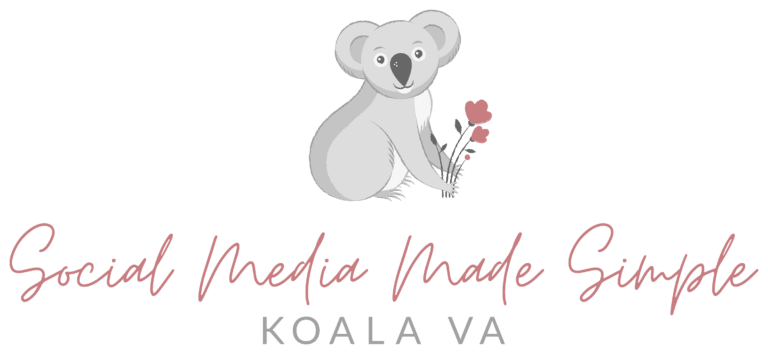As a therapist, you understand the importance of building trust and credibility with your clients. You probably also recognise that social media can be a valuable tool for establishing and maintaining that trust. But how can you show up authentically without compromising your boundaries?
In this blog post, I’ll explore why authenticity matters on social media, common misconceptions about social media for therapists, and tips for showing up authentically with boundaries.

Why Authenticity Matters on Social Media
So why does being authentic on social media matter?
Well, when potential clients see that you are a real person with a unique personality and voice, it helps to establish a connection and build trust before they even meet you.
Here are 3 ways showing up authentically can help you reach your social media and business goals:
- It helps to build trust and credibility with potential clients
By sharing personal and business stories, struggles, and triumphs, your followers and potential clients will see the real you – the person behind your brand. As a result, they’ll likely feel more comfortable and connected with you. (Never forget that people ‘buy’ from people.)
- It helps to increase reach and engagement
A post with personality is much more likely to interest and engage your audience and boost your visibility.
- It helps you stand out from the crowd
In a world where there are so many therapists and mental health professionals on social media, it can be challenging to stand out. By showing up authentically, you really can set yourself apart from other professionals in your niche.
You don’t need to over-share to show up authentically
One of the biggest misconceptions about showing up authentically on social media is that it requires you to share everything. And this fear of over-sharing often holds therapists back from sharing at all.
But the real beauty of showing up authentically on social media is that you get to decide what you share – just like in real life!
Let’s think about it this way: You share your deepest, darkest relationship insecurity with your partner. You don’t share it with your friend. Does that mean you’re not showing up as your true, authentic self in your friendship? Of course not! You’re just choosing which parts of you and your personal experience to share. And the same is true of social media.
Ultimately, being authentic is all about being real, speaking in your true voice and embodying your values. And being real definitely doesn’t mean you can’t keep some things you yourself!
Tips for showing up authentically on social media as a therapist
Now that we’ve laid the groundwork on why authenticity matters, what it is, and what it isn’t, here are some tips for showing up authentically on social media as a therapist (because you still need a plan!)
Know your brand
Your brand is your unique identity and message that you want to convey to your clients. Knowing your brand will help you develop a consistent message and image on social media.
Develop a content strategy
What do you want to be known for on social media? A content strategy will help you plan your social media in advance in a way that aligns with your brand and values.
Use your voice and personality
Your voice and personality are what make you unique – use them!
If you struggle to pin down your ‘voice’ for social media, consider working with a social media marketer to develop a brand voice guide that you can refer back to.
Embrace video
One of the best ways to ‘show up’ on social media is through video. Letting your audience see and hear you can really help your audience connect with you.
Share your personal story (with boundaries)
Share the parts of your life and story that help you connect with your audience in an aligned way. Why did you become a therapist? What made you decide on your specialism? What challenges have you overcome to get to where you are now? What values do you hold and why?
13 authentic post ideas for therapists
- Your journey to becoming a therapist
- Your beliefs about mental health, wellbeing and therapy
- Your unique approach to therapy and the therapeutic relationship
- Things you don’t believe or subscribe to as a mental health professional
- What made you want to become a therapist
- Your own experiences with mental health, self-care, or other topics relevant to your audience
- Commentary on popular mental health and wellbeing topics in the news
- Photos and videos of your office
- Selfies
- Projects you’re working on
- Events you’ve been to
- The training you’re undertaking
- Life events that you feel comfortable talking about (e.g. you adopted a new puppy)
Showing up authentically on social media can feel overwhelming at first, but it’s one of those areas of life (and business) where practice really does make perfect. If you need some help in figuring out what authenticity means to you, what you want to be known for on social media or how to establish your voice, book a power hour with me.
